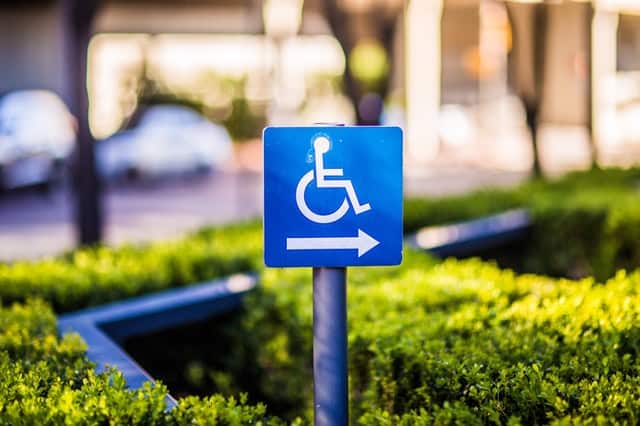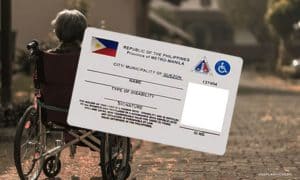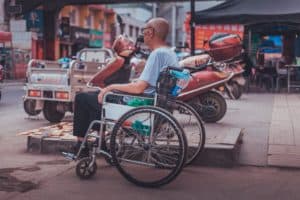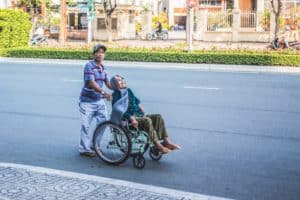Do you know someone who has visual or hearing impairments? Or someone suffering from a psychological illness?
This question can feel awkward, especially if the person with a disability (PWD) is your loved one or yourself. But we’re all unique human beings with different capabilities and disabilities. None of these should judge a person.
The best thing we can do is to educate ourselves about PWDs and help them. Read this article to know more about PWDs in the Philippines.
First, what is a PWD?
A person with a disability (PWD) refers to someone with a physical, mental, or sensory impairment that hinders them from living a normal life. They are also often discouraged to take part in various activities, including sports.
Keep reading to find out all the things you should know as a PWD in the Philippines, such as laws and policies that protect your rights, the benefits you deserve, and career opportunities for persons with disabilities.
1. Laws Protecting PWDs in the Philippines
In the Philippines, disability is one of the social issues affecting a part of the population. Certain laws and policies exist to ensure equality and protect the rights of Filipinos with disabilities.
Republic Act 7277
Also known as the “Magna Carta for Disabled Persons,” RA 7277 is an act providing for the rehabilitation and self-development of disabled persons. The law further states that disabled persons have the same rights as other people to take their proper place in society.
RA 7277 grants the rights and privileges of disabled persons, including equal employment opportunities and access to quality education, health, auxiliary social services, telecommunications, and public transportation services. The law also protects their political and civil rights.
Batas Pambansa Blg. 344
The Accessibility Law is an act to enhance the mobility of disabled persons. It requires buildings, institutions, and establishments to install some facilities and other devices.
The law also requires the installation of sidewalks, ramps, and railings in public spaces.
Republic Act 6759
An act declaring August 1 of each year as White Cane Safety Day in recognition of the visually impaired PWDs’ need for assistance. It also serves as a reminder for the public of their duty to care for and respect them. Overall, the policy was declared to protect the well-being of all handicapped people.
Republic Act 10754
An act expanding the benefits and privileges of persons with disabilities. Its aim is to provide PWDs the opportunity to take part in society by granting them at least a 20% discount and exemption from the value-added tax of certain goods and services.
2. The PWD ID
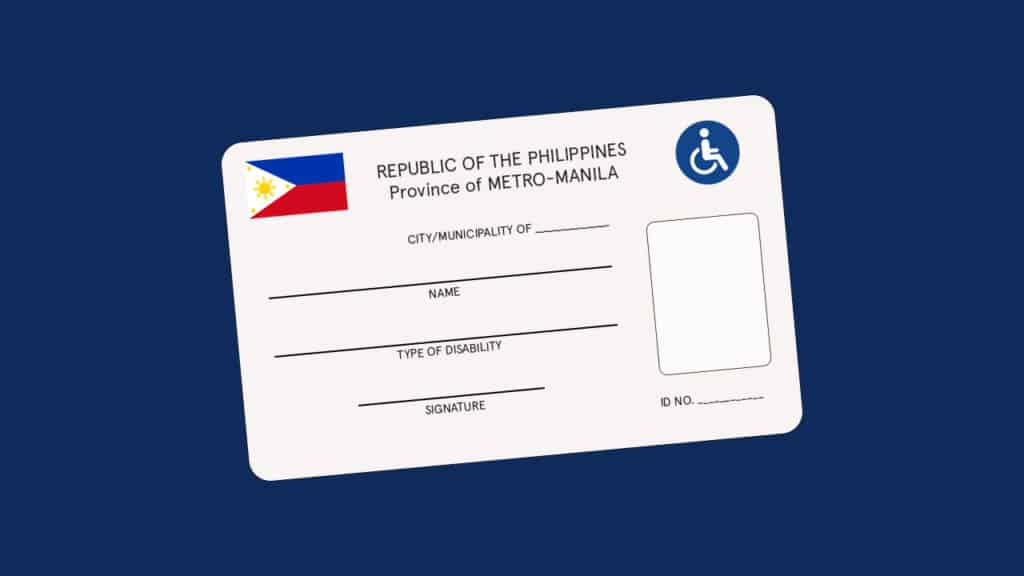
A PWD ID is a valid identification card issued to persons with disabilities. This card serves as proof of availing of the benefits and privileges as mandated by the law.
Getting a PWD ID is free and is valid for three years. The same documents are needed for renewal, provided they are up to date. Expect a minimal fee for renewal of expired ID damage or loss of card.
Qualifications for PWD ID
Filipinos with permanent disability and medical conditions can apply for a PWD ID card. The Department of Health (DOH) considers the following disabilities as eligible to apply:
- Visual disability
- Hearing loss
- Orthopedic disability
- Learning disability
- Psychosocial disability
- Chronic illness
- Mental disability
3. PWD Philippines: Benefits and Privileges
PWDs in the Philippines enjoy certain discounts and privileges. To avail of these benefits, the PWD ID must be presented. In the absence of an ID, those with disabilities may present their passport to get a PWD discount.
20% Discount and Value Added Tax (VAT) Exemption
PWDs can get a 20% discount on certain products and services, and are exempt from VAT which includes the following categories:
- Room accommodations in lodging establishments, including dormitories for students
- Restaurants
- Cinemas, theaters, and other recreational centers
- Medicines, mobility aids like wheelchairs, and food for special medical purposes
- Medical and dental services, including professional fees, diagnostic, and laboratory fees
- Fares for domestic air and sea travel
- Fares for land transportation, including jeeps, buses, taxis, trains, and TNVS/ ride-hailing services
- Funeral and burial services for the death of a PWD
- Skyways and expressways toll fees (for PWD owning a vehicle).
Note that PWDs can’t get double discounts. PWDs may avail of either the 20% discount for a specific service or the discount offered by the establishment if the latter applies.
Likewise, if you’re a PWD and a senior citizen, you can use either your senior citizen ID or PWD ID to avail of the 20% discount.
5% Discount on Necessities and Prime Commodities
The law also grants a 5% PWD discount in the Philippines on top of the mandatory 20% discount and VAT exemption.
- Necessities – rice, corn, bread, fresh, dried, and canned seafood, fresh pork, beef and poultry meat, fresh eggs, fresh and processed milk, infant formulas, fresh vegetables, root crops, coffee, sugar, cooking oil, salt, laundry soap, detergents, firewood, charcoal, candles, and other commodities as classified by the DTI and the DA.
- Prime commodities – fresh fruits, dried, processed and canned pork, beef, and poultry, meat, dairy products not falling under necessities, noodles, onions, garlic, diapers, herbicides, poultry, swine, and cattle feed, veterinary products for poultry, swine, and cattle feeds, veterinary products for poultry, swine and cattle, paper, school supplies, nipa, shingle, plyboard, construction nails, batteries, electrical supplies, light bulbs, steel wire and other commodities that may be classified by DTI and DA.
Note that purchases for necessities and prime commodities should not exceed P1,300 a week to avail of the 5 percent discount.
Mandatory Coverage Under SSS/ GSIS, Philhealth, and Pag-IBIG
Membership to the Social Security System (SSS)/ Government Insurance System (GSIS), Phil health, and Pag-IBIG Fund is compulsory for PWD workers in the Philippines. This means it entitles all working PWDs to the same benefits from these government agencies as other members.
Educational Assistance
In the Philippines, PWDs have access to financial aid in the form of scholarships, educational grants, and subsidies. These privileges apply to educational levels in both public and private schools.
Express Lanes for PWDs
PWDs are a priority in all commercial and government transactions in the Philippines. This law requires establishments to create express lanes for PWDs.
City-Specified PWD Benefits
Aside from the PWD benefits implemented on a national level, some cities provide PWD residents with extra privileges, such as:
- Free movie admission in Makati, Quezon City, Baguio (SM Cinemas only).
- Cash gifts/ financial help in Makati, Cebu city
- Free parking in Muntinlupa, Cebu city, entire Cavite
- Discounted parking in select areas of Quezon City, Manila, Makati, San Juan, and Taguig
- Free birthday cake in Makati
4. Employment of PWDs in the Philippines
It is estimated that 1.57 percent of the Philippine population has a disability, and the majority of them are 15-49 years old. Therefore, the government has made policies to promote equal employment opportunities for PWDs.
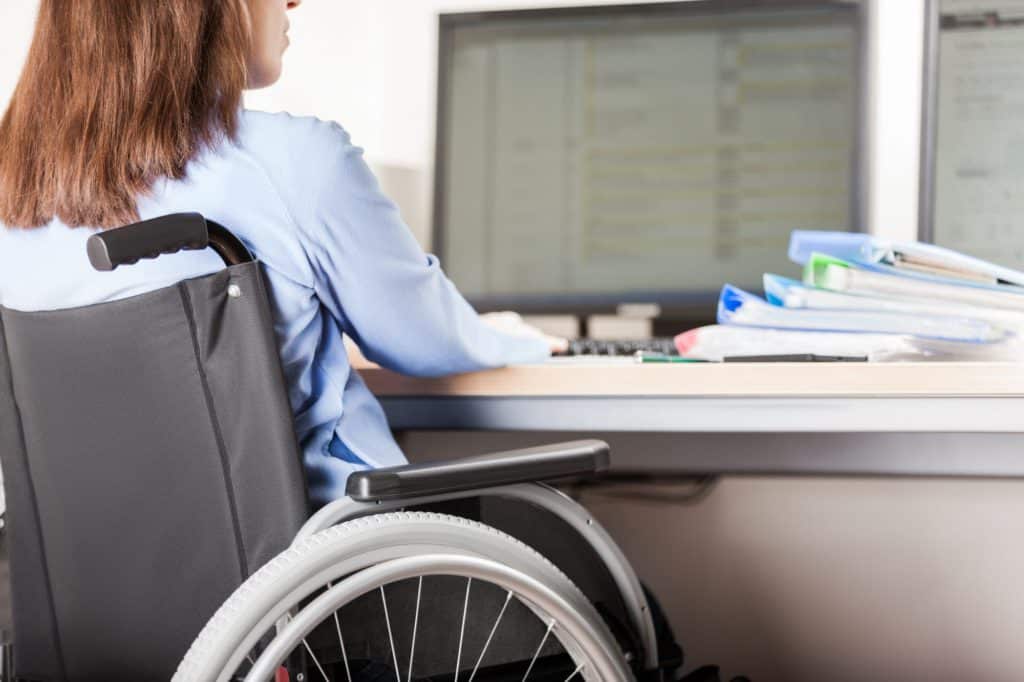
According to the Republic Act 10524, also known as “An Act Expanding The Positions Reserved For Persons With Disability,” no person with a disability will be denied access to opportunities for employment.
A PWD shall not be discriminated against based on disability that involves matters of employment. It also states that at least 1 percent of all positions in government agencies will be reserved for persons with disabilities. Under this, the welfare of the PWD must also be upheld and must not create or impose any burden on the PWD being employed.
The Vocational Rehabilitation Office provides vocational rehabilitation services to PWDs to prepare them for suitable employment by adopting and maintaining the Vocational Rehabilitation Plan to facilitate the rehabilitation of disabled individuals.
In addition, most PWDs in the Philippines are employed by private institutions that provide training and equip them with relevant job skills. Among these institutions are Vibes massage clinics, owned and managed by blind massage therapists, and Tahanang Walang Hagdan, a rehabilitation center for physically impaired individuals.
Tahanang Walang Hagdan provides projects wherein they have metal craft workshops and manufacture wheelchairs, educational toys, bags, and other novelty items.
PWDs Are Vulnerable but They Can Still Live Well
Persons with disabilities are among the vulnerable groups in the country that need the utmost attention from the government. Hence, laws and local policies exist to protect their rights despite their vulnerabilities.
Share this guide to PWDs you know to help them understand their rights and privileges better. Leave us a comment below if you have any questions to ask or thoughts to share!

